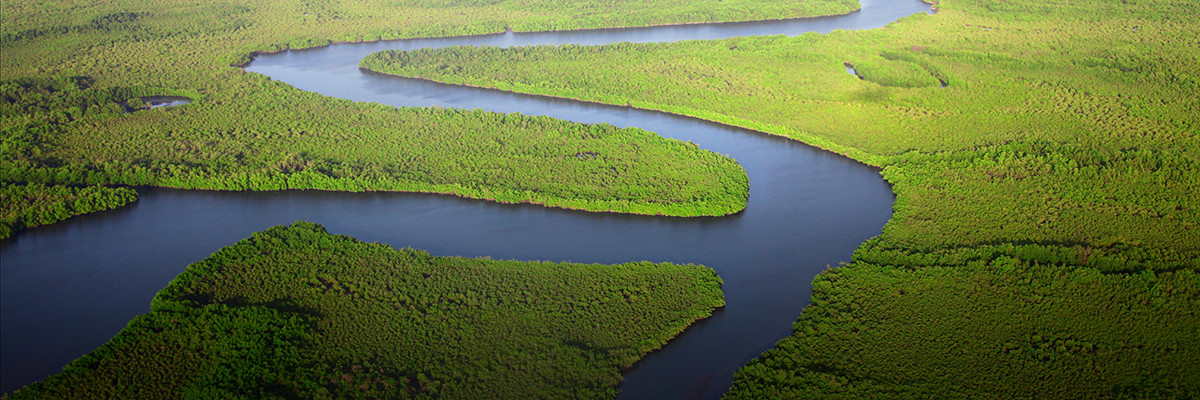
Authors
-
Sissel Waage
Former Manager, BSR
Companies are now investing to restore, maintain, and enhance natural systems. And it’s not about philanthropy, but rather about business decisions, such as addressing operational challenges, optimizing real estate portfolios, or even tackling sourcing and supply-chain-management issues.
Like aikido masters, these business leaders have perceived that leverage is gained from working with dynamics that are already underway. And natural systems are the ultimate in pre-existing dynamics.
These business investments also can offer benefit multipliers—for companies, ecological and hydrological systems, and local residents, as laid out in our new business brief, "The Benefit Multiplier of Investing in Nature," which was funded by the Restore the Earth Foundation.
For instance, consider a few examples offered in the business brief:
- Dow Chemical Company now has almost two decades of data on how well a constructed wetland is filtering water and improving water quality—at a tiny fraction of the cost of a built wastewater-treatment plant.
- The Coca-Cola Company has been acting to maintain reliable access to water, which is a key input to their product, through corporate investments in reforesting and revegetating lands far upstream from bottling facilities, even though lands are owned by others.
- Danone has made climate-related investments that sequester carbon, benefit local economies, and introduce greater resilience into natural systems—all while scaling positive impact by allowing other companies to also invest.
The business cases to support these investments vary situation to situation. In some companies, such as Dow, the “let’s-work-with-nature approach” is more cost- and operationally effective. End of case.
In other companies, the clear dynamics associated with demand and supply of a key natural resource input—such as watershed-wide, total water demand, and supply challenges—drive the investment.
In other situations, investments make business sense when considered in relation to a growing set of threat multipliers. These threat multipliers include market-demand trends (for timber, among many other commodities) or a decrease in reliable, high-quality supplies of essential raw materials—particularly when combined with climate change, water stress, and other challenges that present a growing array of risks to supply chains.
The takeaway for corporate decision-makers is to systematically start asking:
- Are there opportunities to more efficiently run our business by working with and gaining leverage from natural systems?
- Are there natural solutions (in every sense of the word) to business challenges?
- Can investments in maintaining, restoring, or mimicking nature’s systems create less expensive and more effective solutions to operational problems?
- Can these investments offer multiple opportunities, in terms of a benefit multiplier for local residents and regional communities, as well as for natural systems—in addition to a financial return on investment?
Download BSR’s “The Benefit Multiplier of Investing in Nature.”
BSR’s latest sustainability insights and events straight to your inbox.
Let’s talk about how BSR can help you to transform your business and achieve your sustainability goals.